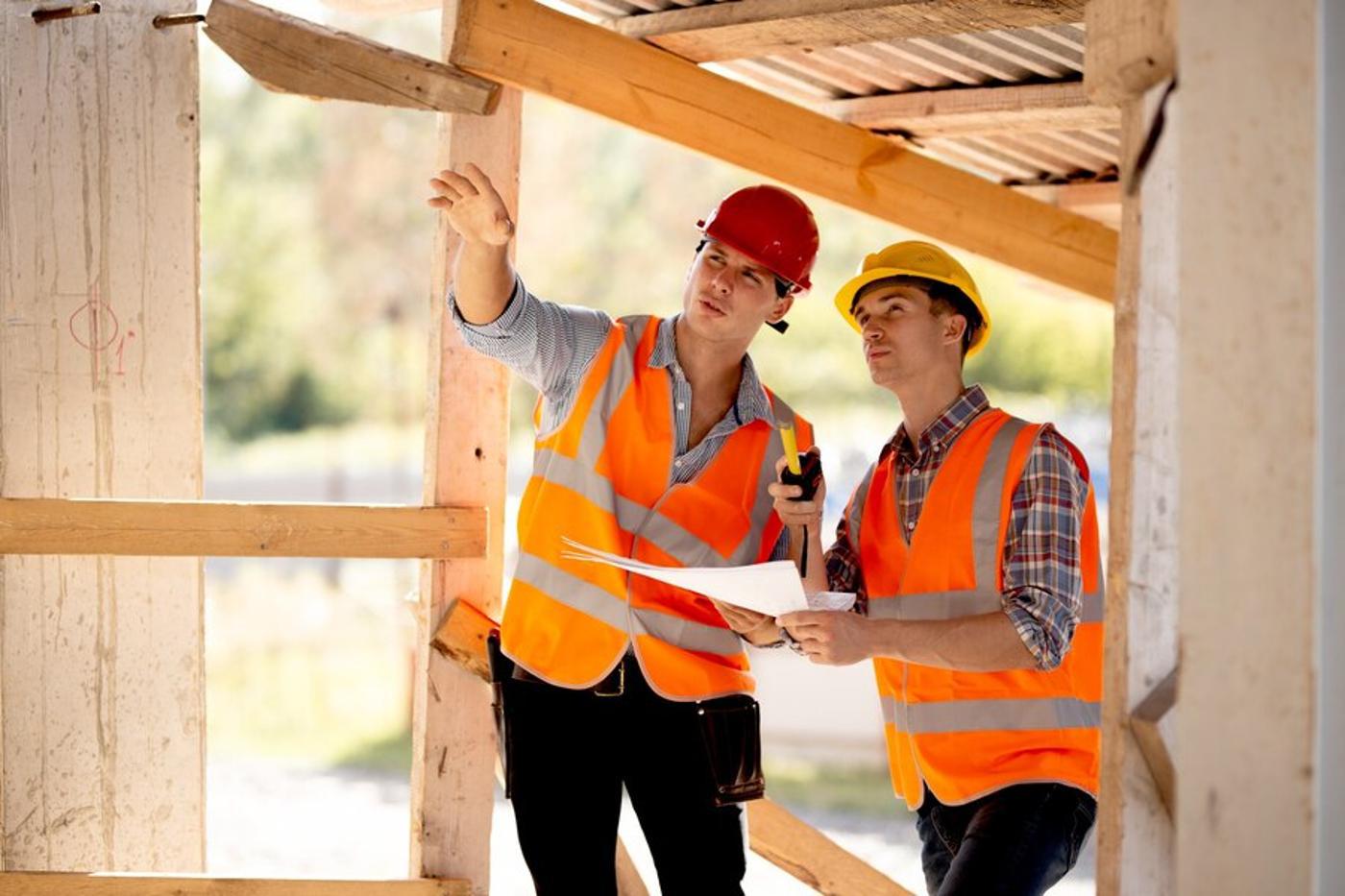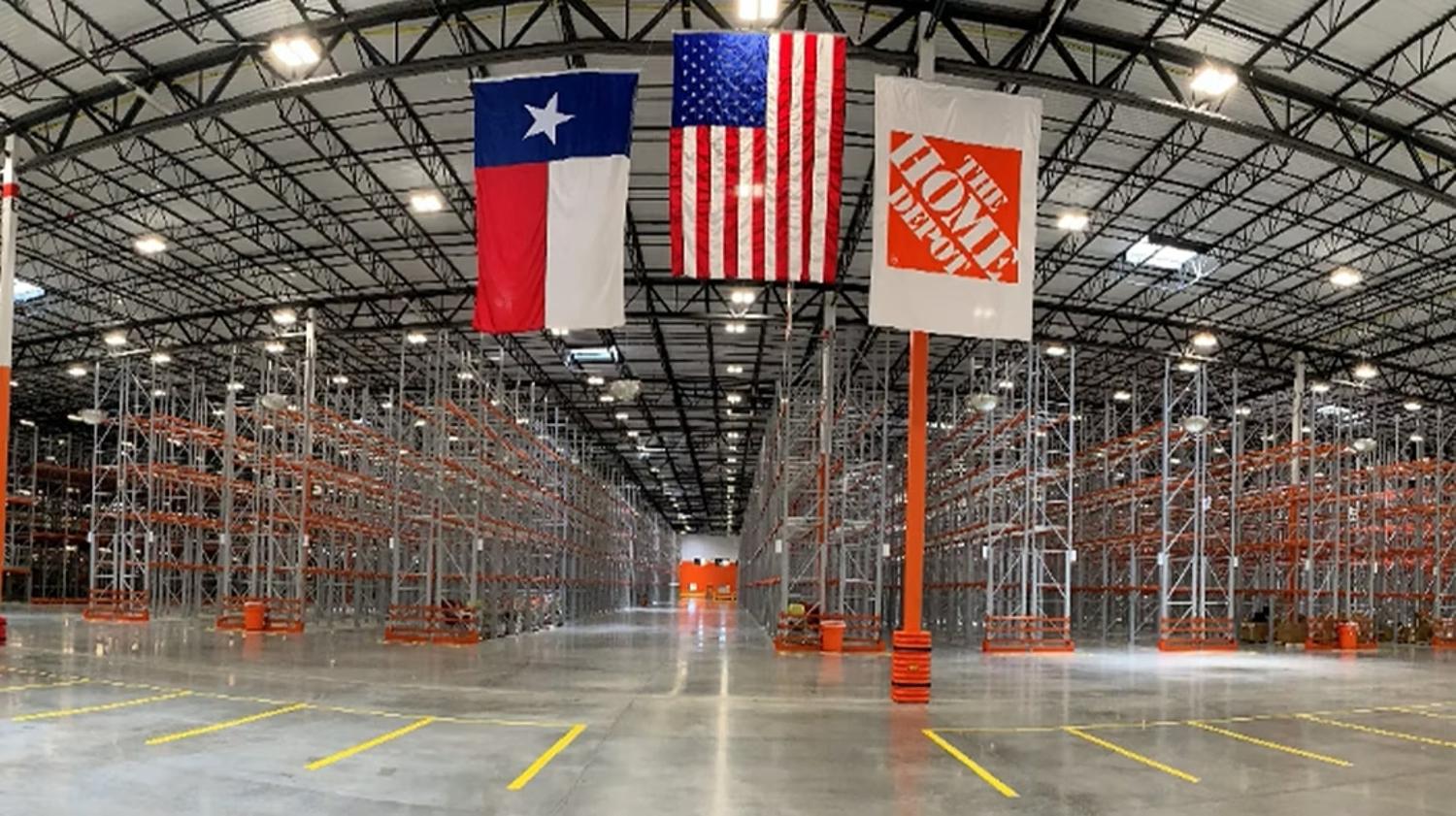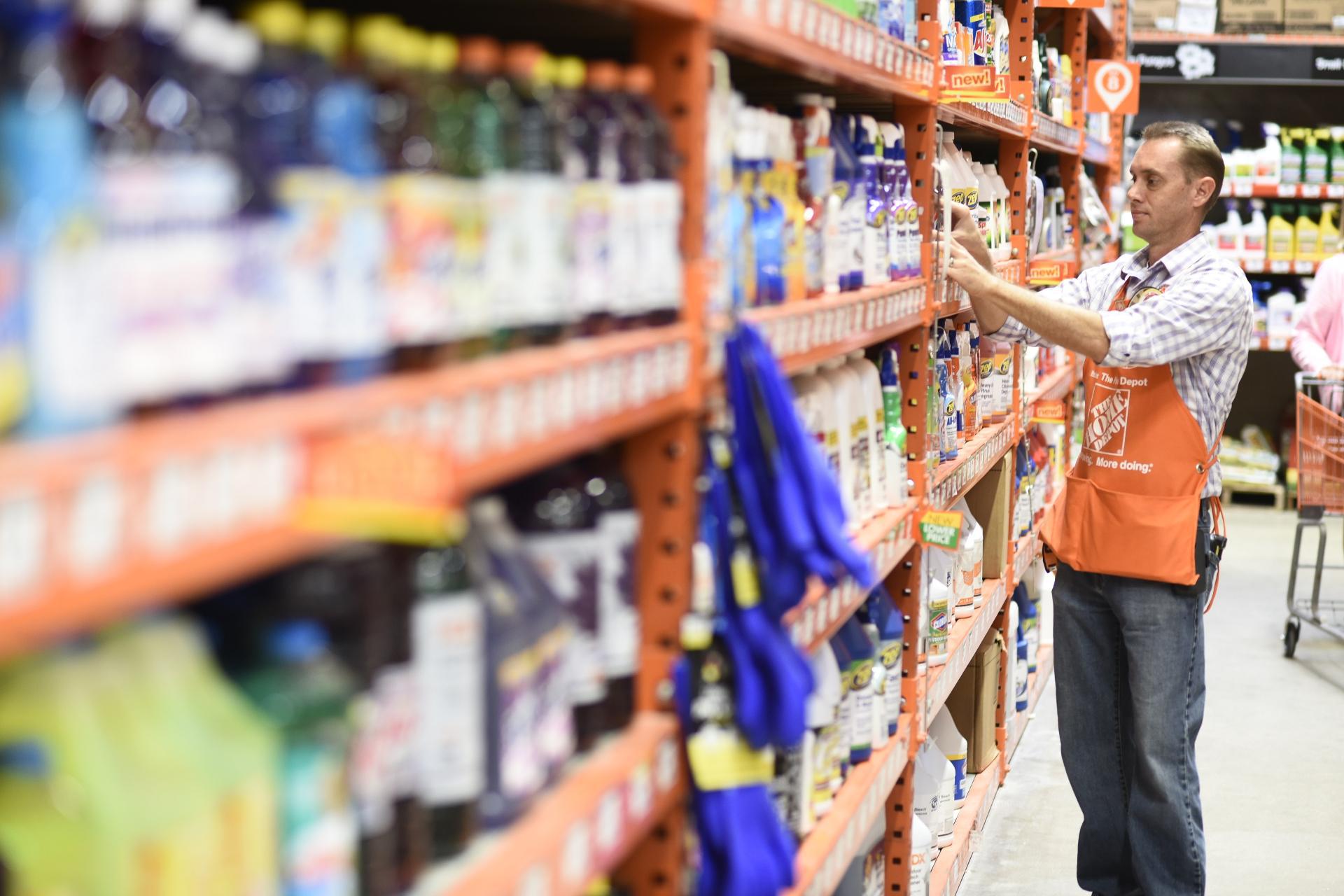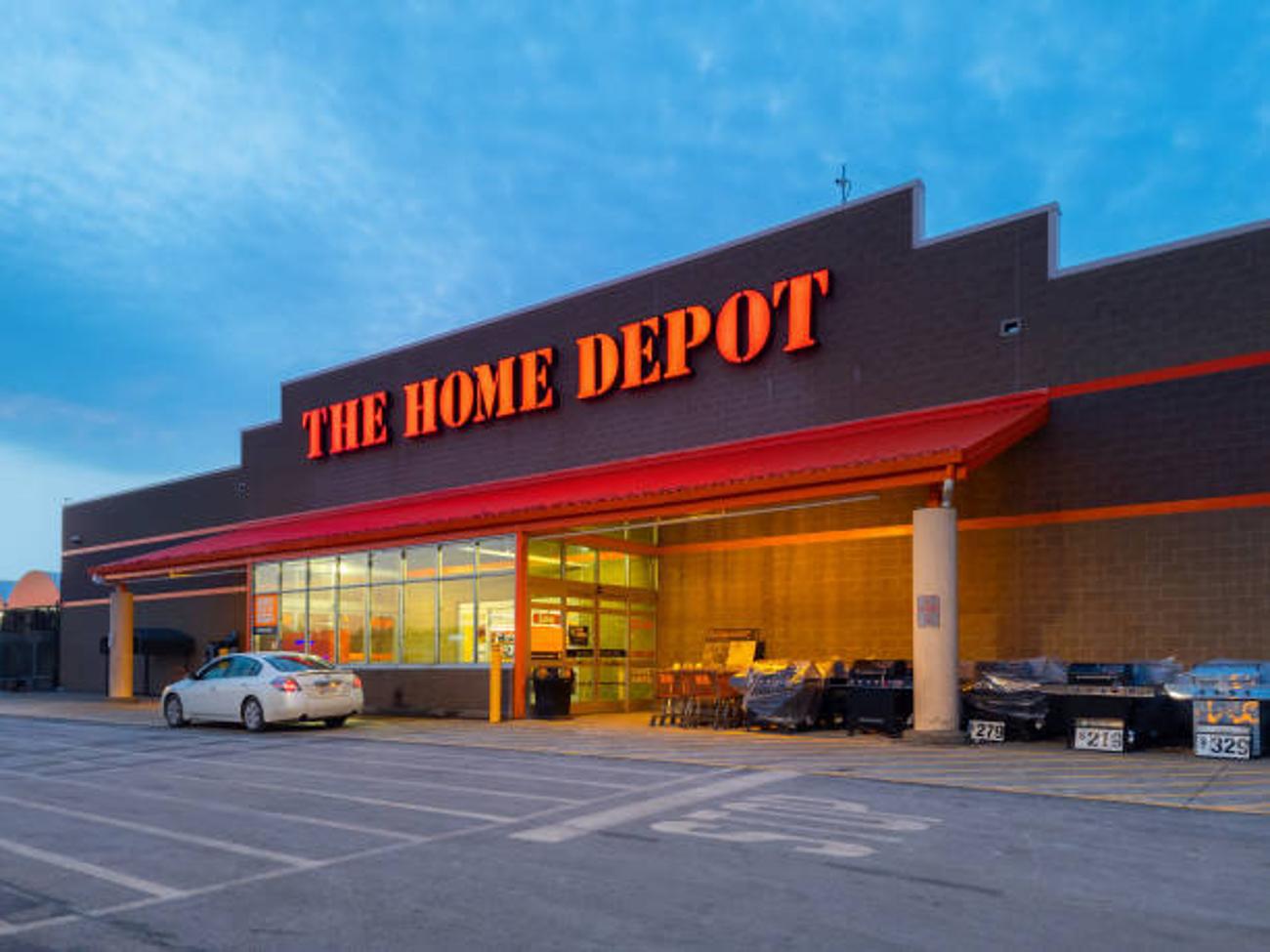The vast majority of businesses struggled to maintain their sales quotas during the COVID-19 pandemic. In fact, there are now 37.5% fewer small businesses than there were in January 2020, as many simply couldn’t stay afloat during this turbulent time.
However, some businesses thrived throughout the first half of the 2020s. The Home Depot specifically had a fantastic few years. But now, after planning a significant expansion, The Home Depot has seen slightly disappointing sales this quarter, and CEO Ted Decker says he knows why.
COVID-19 Meant Millions of People Were Stuck at Home

When the COVID-19 pandemic swept through the globe in 2020, everything changed. Hundreds of millions of people’s lives were turned upside down as they were told to stay home for months on end.
Many Americans who once spent anywhere from 40 to 60 hours at the office were now constantly at home, and they began to look around and see the flaws in their homes. So millions decided then was as good a time as any to start improving their houses, and that’s where Home Depot came in.
Americans Spent Lockdown Fixing Their Houses

The lockdown was a great time for home improvement projects. From repainting the guest room to installing new kitchen cabinets, millions of Americans used Home Depot for all their DIY needs.
People sheltering in place could either order the products they wanted on the Home Depot website and wait a few days to get started, or they could order from delivery companies like Roadie for same-day delivery.
How Did COVID-19 Affect The Home Depot?

Home Depot saw incredible sales growth. In 2019, the company reported $110.2 billion in net earnings, which was a nice 3.5% increase from 2018.
But for the 2020 fiscal year, the company made a whopping $132.1 billion, a more than 21% increase from 2019. Almost every one of Home Depot’s 2,300 stores in the United States was thriving, and their luck didn’t stop there.
The End of the Pandemic Increased Home Depot’s Sales Again

Home Depot’s spike in sales could have been extremely short-lived as the lockdown technically only lasted for six months, from March to August 2020.
However, in another stroke of good luck, as the pandemic waned, the housing market exploded. Millions of Americans were buying new homes and, subsequently, hiring professional contractors to fix them up. Home Depot was the go-to store for both professionals and DIYers, so it benefited from both trends.
Home Depot Announced Its Expansion

With an extra $20 billion in its pockets, Home Depot announced that it would expand the business and soon start to build distribution centers all over the country.
The plan was to create large warehouses with some of their most popular products, like lumber, insulation and roofing shingles for professional builders. Independent contractors and companies would finally be able to buy their supplies in industrial amounts at a great price point from their favorite store.
Home Depot Acquired SRS Distribution

In addition to building several brand-new distribution centers, Home Depot also acquired SRS Distribution. This Texas-based company provided landscaping tools, roofing supplies, pool materials and other industrial products just like Home Depot, but it already had several giant warehouses and a huge client base.
Of course, this was an expensive endeavor. Home Depot spent an almost unbelievable $18.35 billion to buy SRS Distribution. However, the company was sure that their sales would continue to grow as they had over the past few years and that the distribution centers were a foolproof investment.
Home Depot Saw a Disappointing Q1 2024

After several years of growth and expansion, Wall Street had high hopes for Home Depot’s 2024. The expectation was that the company would hit $36.64 billion in the first quarter, but they only reported $36.42 billion.
When discussing tens of billions of dollars, of course, a few hundred million short doesn’t sound all that drastic. But anytime a company falls short of Wall Street’s predictions, it’s something that the company needs to address.
Home Depot CEO Blamed High Interest Rates

Home Depot executives explained to the world, and naturally, their investors, that they believe the slight decrease in sales was due in large part to the nation’s current interest rates.
Federal interest rates sat between 5.25% and 5.5% through the first quarter of 2024, and many Americans felt the negative side effects of such a high percentage.
Americans Are Cutting Back on Spending

Essentially, because Americans were paying more in interest, they started cutting back on anything that might be considered superfluous, including home improvement projects that weren’t absolutely necessary.
CFO of Home Depot Richard McPhail told financial analysts on an earnings call, “Well, interest rates are going – they’re coming down soon. Our customers tell us, hey, with that in mind, with that on the horizon, we’re just going to wait.”
Home Depot CEO Ted Decker Weighs in on the Interest Rate Issue

Home Depot’s CEO, Ted Decker, also weighed in on the interest rate issue. He explained, “I mean it was just six months ago that interest rates hit their peak in October of 2023 mortgage rates.”
Decker continued, “So those are the type[s] of projects when you move into a new house, you update your kitchen; you update a master bathroom, et cetera. And then if you are going to stay in place and take on those type[s] of projects outside of a move, you’re generally going to finance. And as we’ve seen the rates tick up and the impact of rates ticking up, that’s impacting that demand.”
Home Depot Is Still Hopeful Things Will Turn Around

Even though Decker and the other executives understand that the country’s interest rates are affecting their sales, they explained that they’re not worried about Home Depot’s future. Decker said, “What we focus on internally is controlling what we can control.”
And as the Federal Reserve already announced that it plans to reduce interest rates by the end of the year, it’s highly likely that The Home Depot will meet its predictions for the next three quarters, especially as their new distribution centers open their doors.


